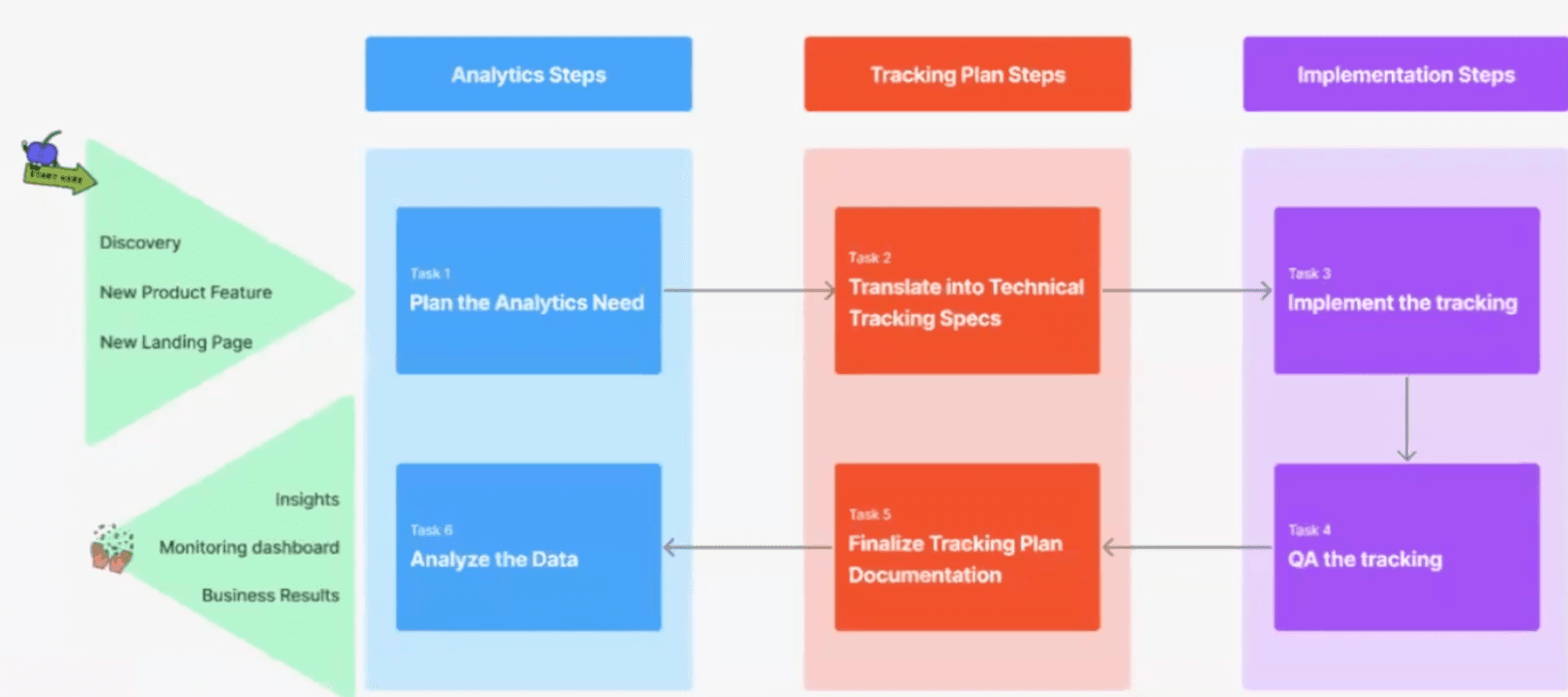Data Governance at Spendesk: Key Takeaways from Our Webinar
Discover how a leading spend management platform implements best practices on data governance.
At Spendesk, we’ve been on a continuous journey to enhance our data governance practices, especially as we scale and evolve. As the European leader in Spend Management, Spendesk platforms saves businesses time and money by connecting company spend and supports over 5,000 businesses in managing their expenses. During a recent webinar with Amplitude, I had the chance to share our experiences and the key learnings from implementing Amplitude as our Digital Analytics solution. It’s been quite a journey, and I’m excited to give you an insider’s perspective on how we’ve been improving data-driven decision-making across our teams.
Read on for a recap of the discussion, or watch the full webinar (conducted in French) on demand: Une Conversation avec Spendesk.
Why data governance matters
Ensuring clear and structured data governance has become increasingly important as we scale. We handle a massive volume of transactional data, and it’s crucial that everyone in the company—from engineers to product managers—has access to the right data at the right time. This is where data governance plays a central role. It’s not just about organizing our data but about enabling teams to be more autonomous and efficient.
When I joined Spendesk two years ago, we had basic systems in place. Over time, as our customer base grew and we expanded globally, it became evident that our data governance needed to evolve. We introduced governance initiatives to ensure that data could be leveraged to drive product decisions, track business outcomes, and help teams understand how our customers interact with the product. The goal was always the same: enable smarter, faster decision-making.
Challenges of rapid growth
One of the key moments in our journey was in 2020, when Spendesk experienced rapid growth. We had just closed a major funding round, onboarded several new teams, and expanded globally. Naturally, data requests skyrocketed. The data team, which initially served a smaller group, quickly became overwhelmed and became a bottleneck.
At the same time, our product strategy shifted toward Product-Led Growth (PLG). This created an even greater need for precise analytics to measure the impact of product changes on the business. Our existing system, which relied heavily on Segment for data collection and Snowflake and Looker for data analysis, couldn’t scale to meet these demands.
To address this, we implemented a digital analytics tool to centralize insights and empower more teams to access data independently. That’s when Amplitude entered the picture.
Lessons from our Amplitude implementation
Our decision to integrate Amplitude was a game-changer, but it didn’t come without challenges. One of the biggest lessons we learned during the implementation was the importance of having a structured rollout plan. What happened at Spendesk is typically NOT recommended… We opened the floodgates and sent eight years of tracking data directly from Segment into Amplitude all at once! I can let you imagine the consequences…
At Spendesk, we understood the value of Amplitude and believed in the vision of self-serve data. We decided therefore to take a step back and introduce best practices for tracking and data governance at that time. This included setting up ownership structures, creating clear documentation, and ensuring that everyone understood how to use Amplitude effectively. Now, we regularly review our tracking to ensure it aligns with business needs while controlling costs.
Building a sustainable data governance strategy
At Spendesk, building a sustainable data governance strategy has been essential as we continue to scale. A key component of this has been our Product Tracking Book, which outlines a structured approach across four pillars: transparency and ownership, a standardized implementation-to-analysis process, continuous monitoring, and robust documentation.
We use a centralized tracking plan in both Amplitude and Notion to provide flexibility and accessibility. By drafting specifications, tracking implementation steps, and documenting every stage in Notion, we ensure that teams clearly understand who owns each tracked metric, why it’s being tracked, and how it aligns with our broader business objectives. This transparency and ownership help every team member—from Product Managers to Developers—understand how their contributions impact our data strategy and, ultimately, the business.
The image below outlines our standardized process that streamlines the journey from initial analytics needs to tracking setup and data analysis. This loop includes quality assurance (QA) and documentation, returning the analytic insights to the Product teams. We’ve found that Developers, for example, benefit significantly from understanding the analytical value of their tracking, which enhances their engagement with data and the impact of their work.

Spendesk Standardized Tracking Process
Monitoring is another cornerstone of our governance strategy. We review our tracking events each quarter, assessing newly added and low-usage events to ensure we focus on high-impact data. This helps us control ingestion volumes and reduce costs by aligning tracked events with real business needs.
Lastly, extensive documentation has been instrumental. By establishing a single source of truth around our tracking processes, we enable teams to access detailed guidance on everything from metric formulation to visualization best practices. This documentation sets a solid foundation for all future governance initiatives, ensuring we stay aligned on a sustainable, data-driven path as we grow.
Looking ahead: Future projects
As we look to the future, one of our biggest projects is addressing the technical debt associated with our legacy tracking systems. We’re also working on improving data ownership across teams, ensuring that everyone takes responsibility for the data they handle. Another exciting initiative is our collaboration with the Design System team, which is helping us refine our data practices and roll them out across multiple squads.
Watch the full webinar with Jules Guillot, Analytics Engineer at Spendesk (conducted in French) on demand: Une Conversation avec Spendesk.

Jules Guillot
Analytics Engineer, Spendesk
Jules Guillot is an Analytics Engineer at Spendesk, the European leader in Spend Management.
More from Jules




